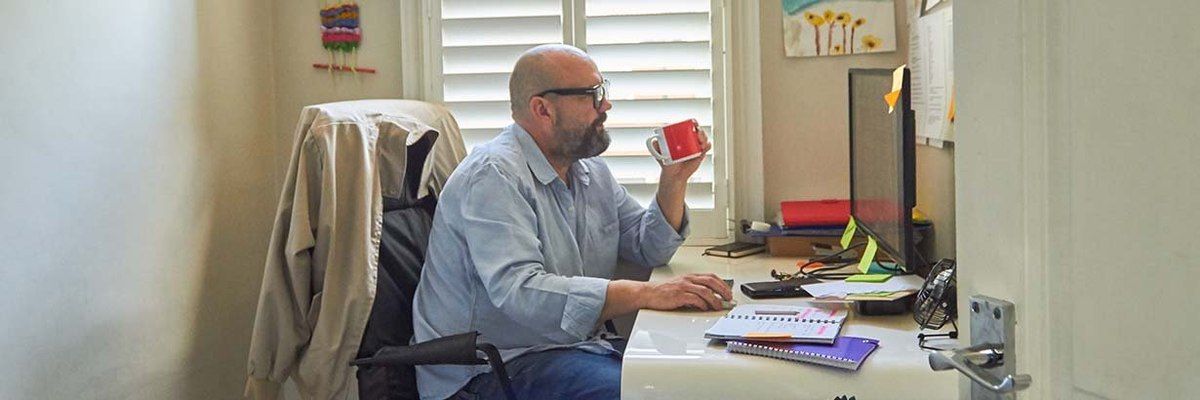Both people and businesses are convinced that workers will never return to offices at the same rate as before the pandemic, with many believing this will disadvantage young employees
Half of British workers (50%) are still working from home at least some of the time, up from 37% before the pandemic. And an even higher number (60%) would prefer to work remotely always or some of the time if they could choose.
But while city centres no longer look like the deserted ghost towns of the height of the pandemic, there is broad consensus that they will never see workers return at the same rate as before. This is a view held by four in five business decision makers (79%) and 70% of the general public, new YouGov data shows.
What are the implications of a world where many more workers do their jobs from home?
Many people, including the chancellor, have made their predictions – some positive, some negative. Rishi Sunak believes young people working from home have much to lose and warns it may hurt their career. He’s not alone in thinking that - seven in ten business leaders (69%) and three in five people in the wider public (62%) say those working remotely at the start of their career will likely struggle to progress.
The view among young Britons themselves matches that of the wider public – 61% of 18-24 year olds think working from home will disadvantage young workers relative to their office-bound colleagues. The oldest Britons are most pessimistic of all, with 74% expecting them to suffer.
But while they expect young people’s careers will suffer, businesses and Britons in general say the shift to working from home will probably benefit other groups, some of whom have traditionally been disadvantaged in the workplace.
Both business leaders (65%) and the public (56%) are convinced it will help advance women’s careers as childcare and caring duties become less of a hindrance for working full time. There’s some evidence to support this: the number of British women not seeking paid work because of domestic and caring responsibilities has fallen by 200,000 since the onset of the pandemic, with economists attributing the change to greater levels of remote working. But there are also concerns that women who were previously going into work are now expected to shoulder an even larger share of the domestic work, with burnout on the rise.
Similarly, two thirds of businesses (64%) and a majority of Britons (56%) say working from home will level the playing field between workers by being more accommodating to people with mental health issues or disabilities. The change in the past 18 months has already prompted some people with disabilities to ask why it took a pandemic for them to be able to work home.
While several voices have accused people working from of being lazy or less productive, this is a minority opinion. Three in five business leaders (59%) say it’s unlikely those working from home will be less productive than people going into work, while a third believe it’s likely (33%). The split among the public is similar, at 50% to 35%.
But while productivity may not suffer, half of business leaders (50%) say it’s likely that remote working will be a drain on creativity and collaboration, as predicted by a former Bank of England chief economist. Two in five (40%) who say it’s unlikely. The public are less sure, with 38% believing it’s plausible, while 40% do not.
Another concern is that the shift to remote working may convince companies to hire cheaper workers in other countries over Britons, with the Tony Blair Institute warning that nearly six million jobs are at risk of being shifted overseas. Businesses are split on the prospect of this, with 43% saying it’s likely vs 45% saying it’s unlikely. Britons are also divided, by 38% to 36%.
See the full results for business leaders here and the general public here, and here









